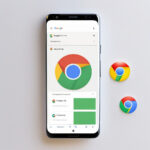In a significant legal judgment, U.S. District Judge Yvonne Gonzalez Rogers ruled that Mark Zuckerberg, CEO of Meta Platforms, is not personally liable in a series of lawsuits accusing the company of responsible practices that allegedly contribute to addiction among children on social media platforms like Facebook and Instagram. This decision comes amidst growing concerns regarding the impact of social media on youth mental health.
The lawsuits stem from claims made by plaintiffs in 13 U.S. states, including Arizona, New York, and Texas. They asserted that Zuckerberg directly oversaw efforts to conceal the mental health risks associated with social media use among children, arguing that he disregarded warnings from within the company about potential dangers. The plaintiffs described Zuckerberg as the “guiding spirit” behind what they perceived as a deliberate strategy to prioritize profits over the well-being of young users.
Judge Rogers dismissed these claims, stating that the evidence provided lacked specificity regarding Zuckerberg’s actions. She noted that mere control over corporate activities does not establish personal liability. The ruling specifically applies to Zuckerberg’s individual responsibilities, leaving open the possibility for the lawsuits to continue against Meta itself.
A significant point in the discussion is the increasing scrutiny and legal challenges faced by major technology firms surrounding their operations. The lawsuits against Meta are part of a broader wave of legal actions involving social media platforms, including similar claims against Google, TikTok, and Snapchat. Various U.S. state attorneys general are pursuing investigations that link social media use to rising instances of anxiety, depression, insomnia, and disruption in education.
Previn Warren, a partner at the law firm Motley Rice representing the plaintiffs, emphasized the ongoing efforts to gather more evidence against Big Tech companies. He stated, “We will continue gathering evidence to uncover the truth about how Big Tech has knowingly prioritized profits over the safety of our children.” This sentiment reflects a growing public and legal response to perceived negligence in handling user safety, particularly among the vulnerable youth population.
This verdict has sparked mixed reactions across different sectors. Advocates for children’s mental health express disappointment, viewing it as a setback in holding powerful technology leaders accountable for their role in the crisis of social media addiction. Conversely, defenders of corporate leadership argue that establishing personal liability is a daunting precedent that could unreasonably burden CEOs and corporate executives.
Amidst these developments, several states are beginning to enact regulations around youth smartphone usage, highlighting a concerted effort to address the mental health crisis linked to digital consumption. At least 15 U.S. states have introduced policies specifically aimed at mitigating potential harms associated with uncontrolled access to social media and other digital platforms by young users.
Marketers and businesses must pay close attention to these changes. New regulations can create hurdles when reaching young consumers, but they also present a chance for businesses to refine their strategies and understand Gen Alpha better. Failure to adapt to shifts in regulations and public sentiment about social media can leave companies behind in an increasingly conscientious marketplace.
The case, titled “In re Social Media Adolescent Addiction/Personal Injury Products Liability Litigation,” represents a pivotal moment not only in legal terms but also in shaping the future landscape of technology, business practices, and consumer expectations. As litigation against tech giants continues to mount, the outcome could redefine corporate accountability standards, particularly as they pertain to vulnerable populations.
In summary, while Mark Zuckerberg is not held personally liable for the alleged harms inflicted on children through social media use, the broader implications of this legal ruling will continue to unfold. It highlights the critical balance between corporate responsibility and personal accountability in an industry grappling with its societal impacts.












